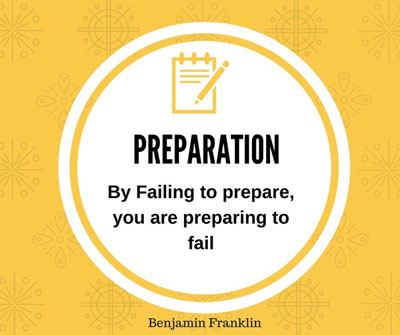Negotiation skills are an important part of real estate. A negotiation shouldn’t be about winning or losing but is more towards creating a win-win situation where both parties ended up satisfied with the agreement.
Here are 6 tips to make you a better negotiator:
1. Preparation, Preparation, Preparation

There is nothing that will get you further than being well prepared, yet is often the part of the process we spend least time on due to various reasons like “too busy”, “we know all the facts already” etc. The most effective negotiators don’t neglect this. Being a well-informed negotiator will make you a more confident person with more negotiation power and to get a better outcome. Hence, thorough due diligence on the property is vital to your negotiating success. You can get loads of information from the internet and social media and you can also spend some time talking to the other agents in that area to get more knowledge on the property. Some of the points to take note:
How long has the property be up for sale in the market
Recent sold price of the properties within the area (know the facts)
Understand the location of the property and it’s surrounding (amenities, future development, public transport etc)
Find out beforehand the exact selling price and whether it is negotiable
Find out why the seller want to sell the property
Find out about rental rates and vacancy rates in the area (for investment property)
One advice is that never start negotiating until you know what the property is really worth and what value it has in your portfolio.
Most people tend to assume that negotiation is always about money, but often it is not. Smart negotiators realize that in many cases, it’s more important to solve a problem than to offer the most money.
2. Be One step ahead
Before negotiation, always figure out some of the possible objections and determine how you would have overcome them if it’s really happened. Sometimes people tend to get stuck on a certain point so it’s your job to show them there is another way to solve the problem.
3. Ask More Questions

One of the top secret weapons of good negotiators is to ask questions – and then remain silent.
The person asking the questions controls the conversation.
Good negotiators tend to ask a lot of questions not to find out the property information (which they already know before commencing the negotiation), but because they want to get the other person to talk and to build the rapport along the conversation so that they are comfortable of sharing their thoughts.
4. Learn to LISTEN MORE
One of the skills of being a good negotiator is knowing when not to talk but to listen.
Many inexperienced negotiators in the market are often too eager to show off just what they know. They just can’t remain silent long enough to really hear them. This can work against them as they often reveal too much too soon. Listening is important as when you listen well, you can gain the trust and confidence of the other party and build rapport. We will make them feel important. At time, you may use facial expressions (not your voice) to make a point and make sure you are making good eye contact while listening.
This makes the next stages of negotiation easier as people like to connect and deal with people they fell comfortable with. Often, when people are encouraged to talk, they will indirectly tell us their needs and wants and what they desire most. This will put you in a better position when negotiating a deal as you understands what their need is.
For example, some seller might want to get rid of the property soonest possible as they have financial difficulties, hence you may offer them a lower price in return for a quick sale. Whereas on the other hand, some seller can take their own sweet time and only agree to sell if the price is right, in this case, offering a low price wouldn’t be attractive.
5. Let the other party speak first
You’ll often hear people say, “Never make the first offer…let the other party do it.” Often people tends to offer first and by stating your position first, you’ve given away valuable information to the other party (you maximum price), and he will use that information to extract the most money possible from you.
6. Negotiation is equivalent to trading

Often negotiators think of negotiation as a competition, as a chance to get everything their way according to their personal needs. In the real world, it simply does not work that way. A negotiation is not a battle. Negotiation is a two-sided process by which we obtain something we want, from someone who wants something from us. It’s more like making a trade between two parties. A successful negotiation is one in which both parties can leave the table feeling as if they’ve won something
By truly understanding what they want, why they want it and how much they want, only then you can propose an effective proposal. Communication skills are a crucial part of any successful negotiators tool kit hence spending time gaining information and understand their needs is important in determining a successful trade. It is important to keep the emotions off the table and if the situation becomes too heated, always agree to walk away, think of alternative solutions and then meet and discuss again.
Negotiation skills is important because it is a crucial part in determining the return of investment on the particular property (the better they buy, they will get a much greater profit). Hence, do not neglect negotiation skills and the most important note is “practice makes perfect”. It’s ok if you screwed up in trying to negotiate the first few deals as long as you learn something from it and do not repeat the same mistake twice!
「If this article is useful to you, feel free to buy me a coffee ☕」
If this article is useful to you, feel free to buy me a coffee ☕
